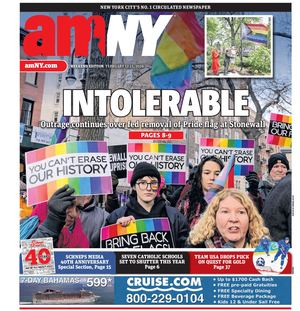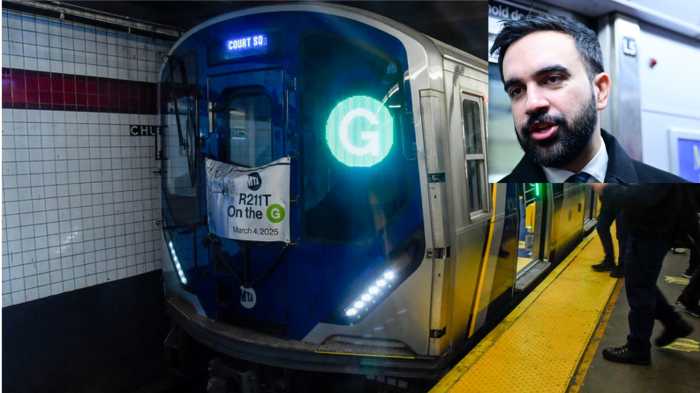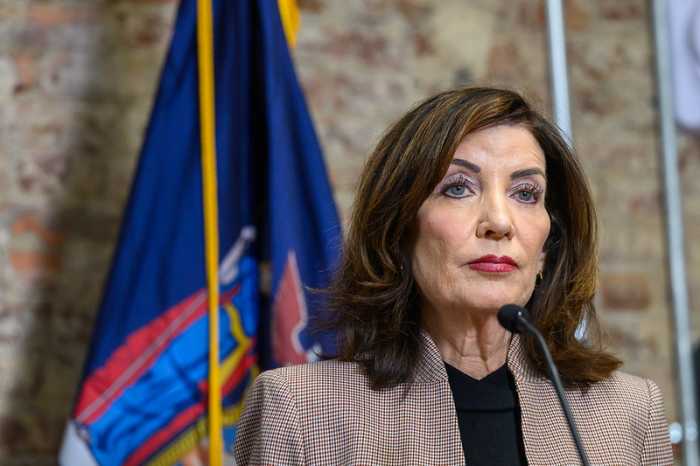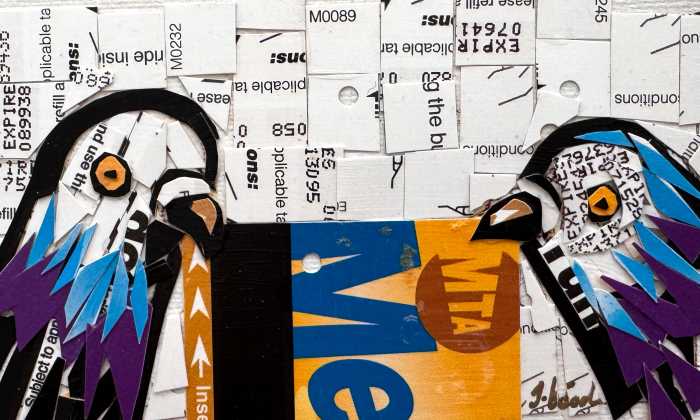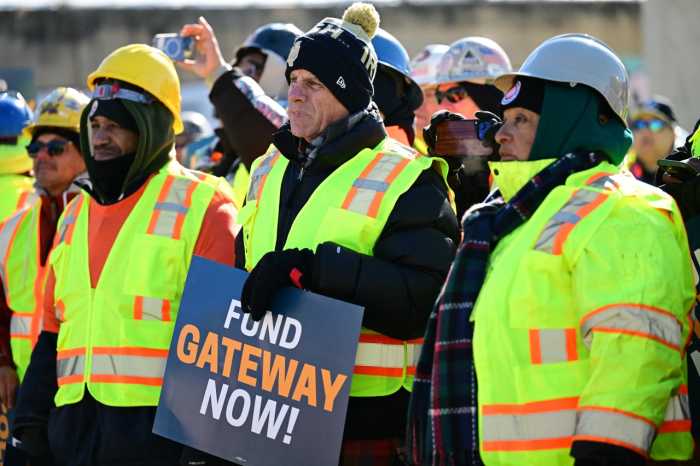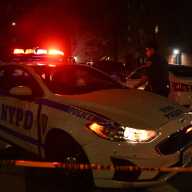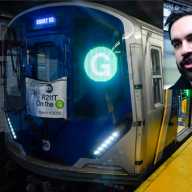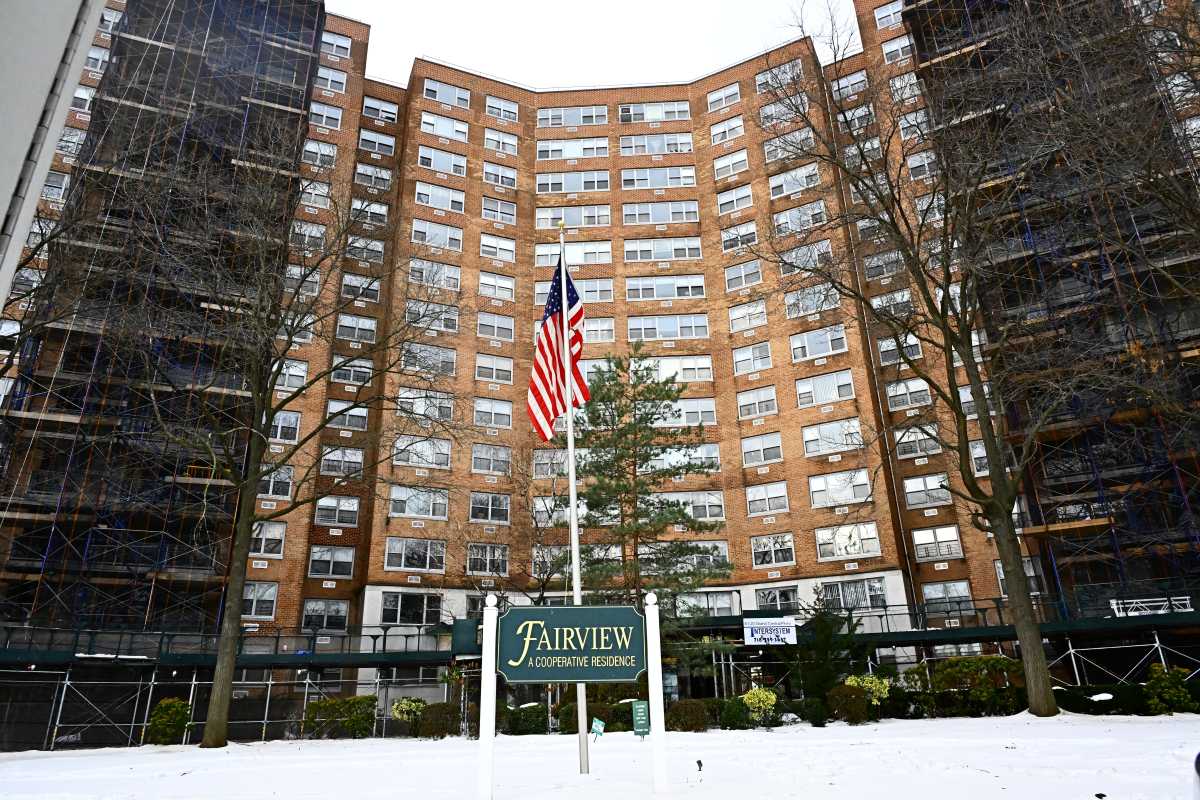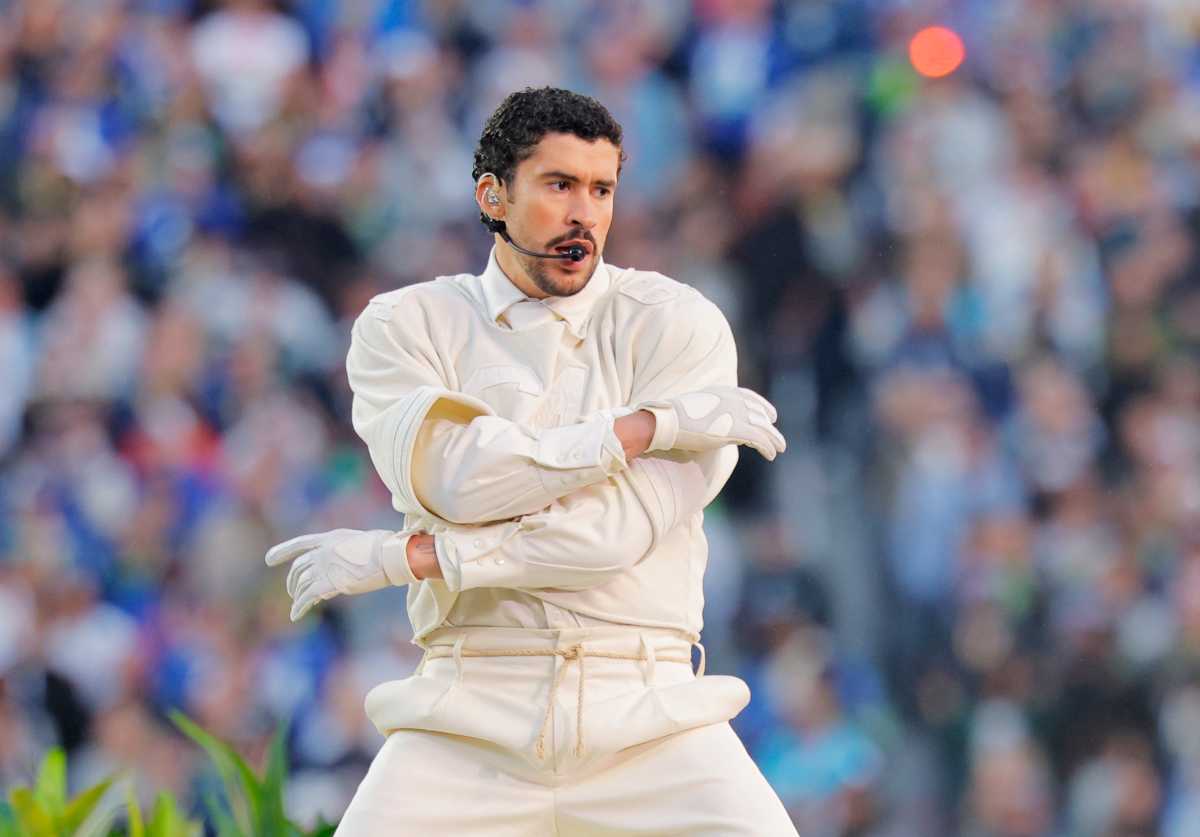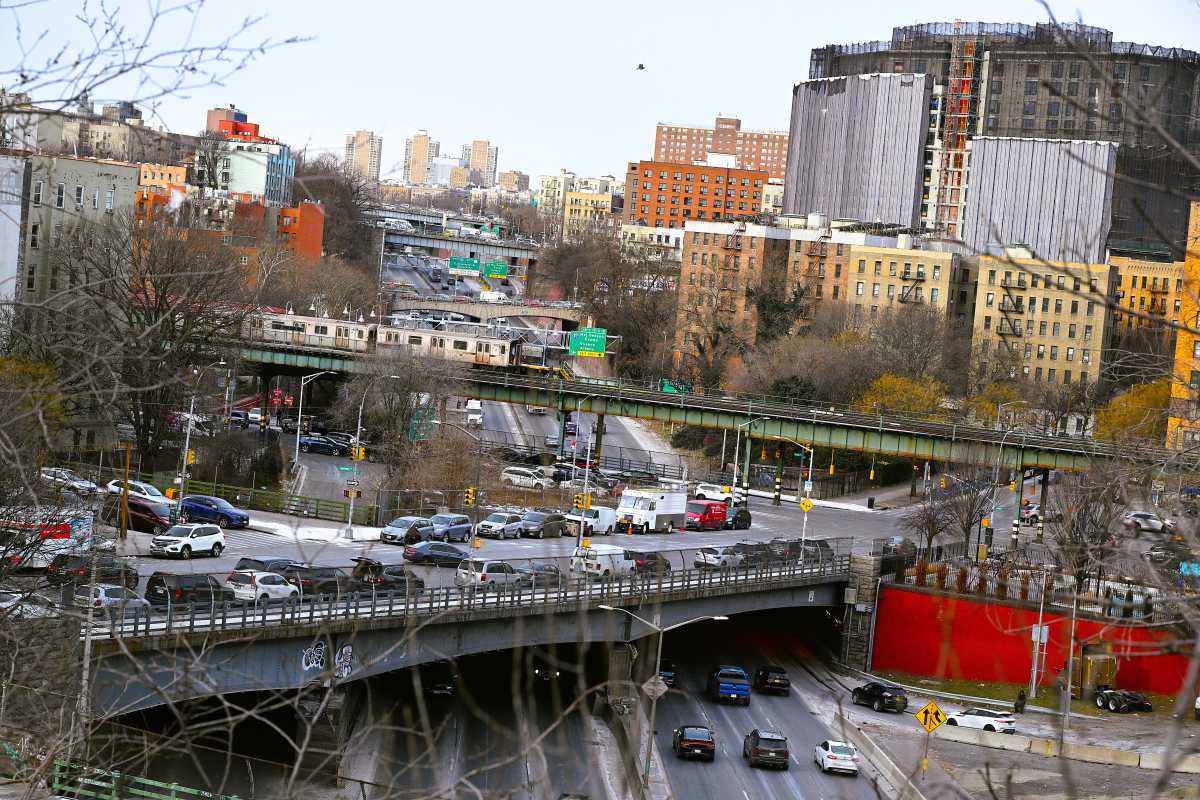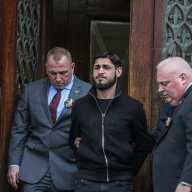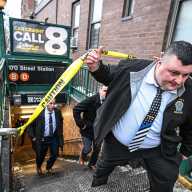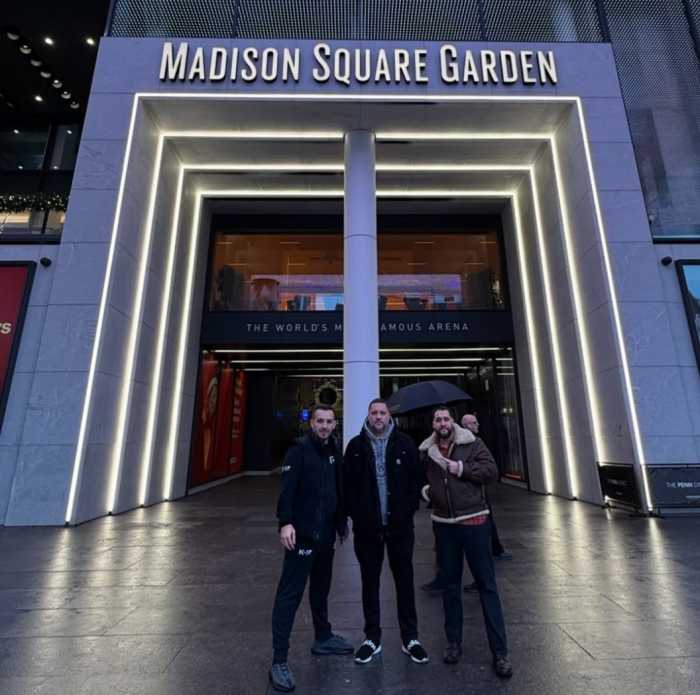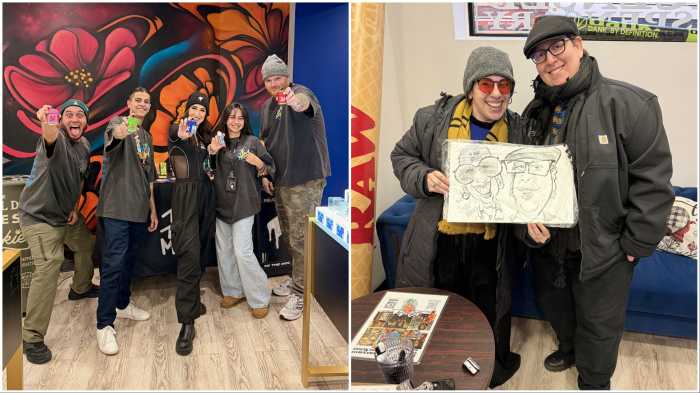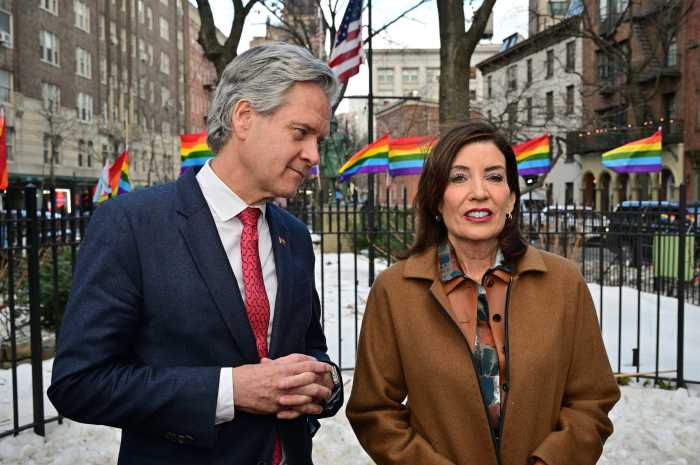
Funding to provide low-income New Yorkers with half-priced MetroCards should not be subject to the “political machinations” of the de Blasio administration, Bronx Borough President Ruben Diaz Jr. said on Wednesday.
The borough president’s statement comes one day after Mayor Bill de Blasio renewed his call for funding the fair fares initiative with a so-called millionaire’s tax on the city’s wealthiest residents — a plan that would require approval from the state Legislature — during his State of the City speech.
Fair fares, an anti-poverty effort aimed at making transit more affordable, has garnered wide support from transit advocates and elected officials, but how to finance it has become a subject of political squabbling.
A host of transit advocates teamed up with Diaz on Wednesday to call on the mayor to set aside the estimated $200 million needed for fair fares in the city’s 2018-19 budget. Diaz contends the initiative is “too important” for the mayor to pin funding on the success of his lobbying in Albany.
“For a relatively small amount of funding, the administration could provide the working poor with real financial relief by making fair fares a reality,” Diaz said. “For $200 million we could make a significant impact on the everyday lives of nearly 800,000 New Yorkers — people from every corner of this city who desperately need a helping hand.”
Jaclyn Rothenberg, a spokeswoman for the mayor’s office, said the mayor stands by his proposal to fund fair fares with a tax on the wealthy.
“Rather than make everyone pay for fairer fares for low-income New Yorkers, the mayor believes the wealthiest millionaires in our city should,” Rothenberg said in an emailed statement.
A 2017 survey conducted by the Community Service Society found that one in four New Yorkers living below the poverty line are often unable to pay for subway or bus fares. The survey also found that 31 percent of poor New Yorkers could not consider jobs that were far away from their homes because of transit costs.
Janice Tosto, a member of the transit advocacy group Riders Alliance, which supports funding fair fares in the city budget, recalled a time “not too long ago” when she was faced with making tough choices while searching for a new job.
“I would either skip buying groceries to pay for my MetroCard or I would walk long distances to get to where I needed to go,” Tosto, of the Bronx, said. “Now that I am employed as a career mentor for the homeless, I make sure to swipe fellow New Yorkers in whenever I have a chance. But struggling New Yorkers shouldn’t have to beg or sacrifice necessities just to get ahead.”
While a millionaire’s tax would provide long-term funding for subway fixes, it would not offer the immediate relief that low-income New Yorkers need to get to work right now, according to David R. Jones, president and CEO of Community Service Society.
“The mayor should move forward and launch a half-priced fair fares program and fund it in the city budget,” Jones, who is also an MTA board member, said. “By not doing so, the mayor would’ve missed an opportunity to prove that his pronouncements about creating a fairer city were not just political rhetoric.”
The theme for de Blasio’s State of the City address, delivered at the Kings Theatre Tuesday night, was to create the “fairest big city in America” with an agenda that includes the millionaire’s tax, electoral reforms and providing mental health care for all.
“So, this will always be my goal. Progressive taxation is always what I will fight for, but I also want to be clear to everyone else working on this issue: I will sit down with leaders in Albany anytime, anywhere, to find a solution to the subway crisis,” de Blasio said of the millionaire’s tax. “I have only one condition: the money raised in New York City stays in New York City.”
Diaz said it’s important not to lose sight of the working poor as city and state officials debate how to best fund the aging subway system.
“We should consider developing a more nuanced system of collecting fares — a system that takes into account a commuter’s means, and provides a discount to those New Yorkers who need it the most,” Diaz said.
